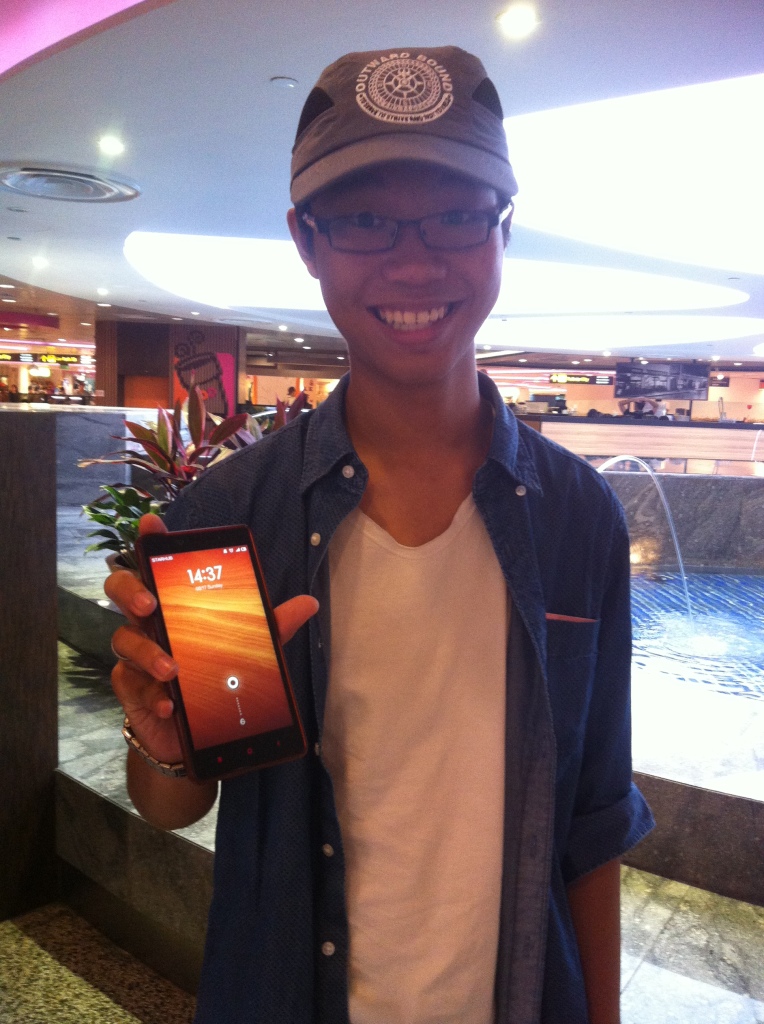From shopping to banking transactions; education to entertainment; personal productivity to information retrieval; social networking to photography; navigation to communication. To say that the smartphone has phenomenally revolutionize our daily lives would merely be stating the obvious.
To be a technological illiterate today can only mean surrendering oneself to being hugely disadvantaged. In the years ahead, it would not be an exaggeration to say one will be extremely handicapped if he or she remains one.
Therefore, it is obviously no longer a question of to give or not to give a smartphone to your child. Rather, the decision lies in when to give and how to manage his or her usage.
Like money, smartphones are ingenious tools that man created to serve him. However, any tool when misused or mismanaged becomes a snare that enslaves its owner rather than serve him. With money, the temptation has always been greed. With digital devices like tablets and smartphones, the risk is addiction.
Below is an interesting info-graphics on the youth mobile behaviour complied by http://www.totalyouthresearch.com/:
Furthermore, totalyouthresearch.com found that 97% of teens and 91% of 20-year-olds regularly use smartphones in the bathrooms to check messages.
This year, my eldest son received his first smartphone at age 15. I presented him with a Xiaomi Redmi Note for his birthday.
My wife and I enforce strict rules on our 3 boys in terms of gaming and digital devices screen time.
For Mike, he received his first mobile phone purely for communication purposes when he started his secondary one. It was not a smartphone though it was able to download music and basic 2D games. We were only willing to give him a smartphone this year after we were more confident of his maturity to manage his screen time.
Nevertheless, it was a decision made after an extended deliberation by me. We decided on certain restrictions to protect Mike from addiction. The restrictions include no data plan and usage of pre-paid card rather than a voice plan.
Along with the birthday gift. I messaged him the following text:
With more benefits come with more responsibilities.
More power comes with more self-control.
What you now hold in your hand
would have been considered a super computer years ago.
Now it has become a common tool.
Nevertheless, this can either bring you great benefits and power
by connecting you with people and empowering you with greater knowledge.
Or it can shut you from the rest of the world
through self-absorption and addiction.
Use it responsibly and with self-control.
And when you have learned to master the created
rather than let the created master you,
you would have grown.
When we can be responsible for the little,
God can then entrust us with much.
Watch this video:
Have a blessed birthday Mike.
Long winded just for a birthday present, I know. But it was crucial for me as a father to drive home the message.
Many parents struggle with helping their children managed their smartphone screen time and there are certainly no one-size-fits-all model answer that can address all the concerns.
However, there are certainly many useful advice that parents can reference to.
Fathering Champions recently interviewed Shem Yao, a Coach and Trainer with Touch Cyber Wellness:
1. Is there a general guide on the appropriate age range to give your child a smartphone?
Shem: Typically, we try not to tag age appropriateness to the ownership of a smartphone. Rather, we work with helping parents to identify the following before giving their children the ownership of a smartphone:
– What is the main objective of giving the child a phone/smartphone?
– Is giving the smartphone meeting a need or a want?
– Is the child ready for the responsibility of having a smartphone? (Usage, content access etc)
2. What are the measures parents can take to help their children control the use of their smartphones?
Shem: Parents need to send the message to their children that having a smartphone is a privilege, not an entitlement. Parents need to create a healthy digital device usage culture at home and in the family, where parents role model for the children. Certain house rules pertaining to smartphones should be in placed. For examples:
– No device usage at meal times (applies to all in the family)
– Common charging area for the phones in the living room (manage usage after bed time)
– Parents have full access to children’s smartphone
– Set time boundaries when it comes to phone usage (Example, all phones off and in charging area by 10.30pm or whatever bed time set)
3. Should parents “spy” on their children’s smartphone usage through the use of parental control Apps? Is this an “infringement” on their privacy, especially if they are already in their teens?
Shem: We highly discouraged any form of “covert” operations, for the reason you mentioned. However, we highly encourage the use of parental control applications for youths who are in their teens. This must be done through good communications, where parents share their reason and concern for doing so. Ultimately, the phone is a privilege and the parents do have a final say and the child need to use it within the boundaries set, including having a parental control application as a installed feature.
4. What do these Apps monitor and what are some of the popular Apps on the market?
Shem: Commonly, these applications monitor usage, most used applications, sites visited, etc. Some include remote tracking of position through GPS, remote locking of phone and setting time limit. Popular applications available include Time Away, Norton Family, Parentkit, Net Nanny.
5. How else can parents teach and influence their children on responsible usage of their smartphones and lead a more balance lifestyle?
Shem: Role-modelling is the key. Importantly, parents should set clear and well explained and communicated boundaries. Parents should affirm good usage habits. If parents do not want their children to use their smartphones excessively, parents should be ready to provide answers or alternatives. Basically, what do you expect them to do then?
6. Recently, Touch Cyber Wellness launch a new App targeted at parents. Share with us more about this Apps.
Shem: The application is called NotANoobie and it is a collaboration between TOUCH Cyber Wellness and Singtel to provide parents with resources, such as reading materials, tips, articles and success stories to understand the trends and what is going on in the Internet sphere.
In a nutshell, helping your child manage his or her screen time is down to a strong parent-child relationship build on open communications, engagements and trust within mutually agreed boundaries. Having a balanced lifestyle is also important such as investing time as a family in off-line activities such as playing a sports, having regular meals together, walk in parks, etc.
Shem Yao has been working with TOUCH since 2008. His portfolio is to manage and bring Cyber Wellness education programme and workshops to students and adults. TOUCH has worked with many schools in Singapore, reaching to about 1 million youths since starting in 2001. Shem has also been reaching out to parents, teachers and counselors. Shem has conducted over 150 workshops to empower adults to bridge the digital gap. Shem is a father of two kiddos, a 4-year-old boy and a 1-year-old girl

